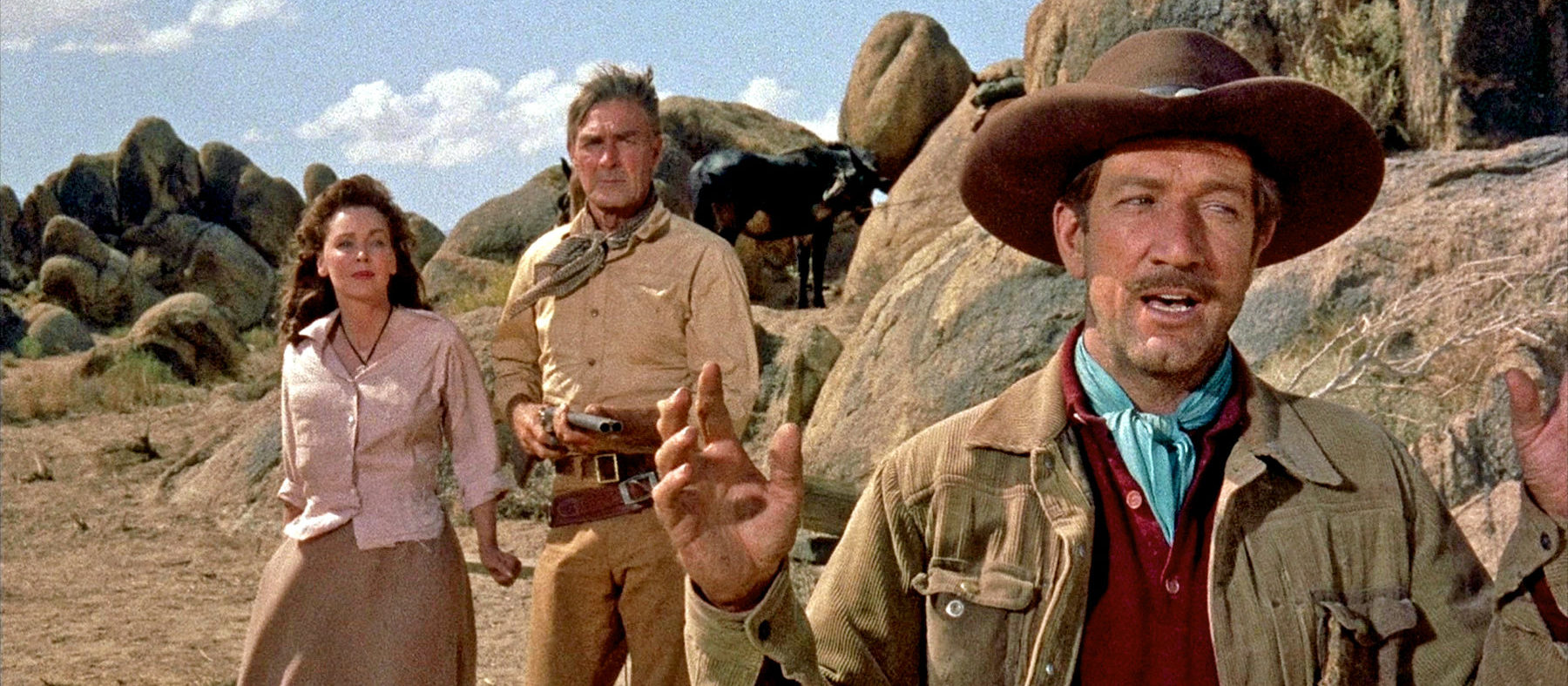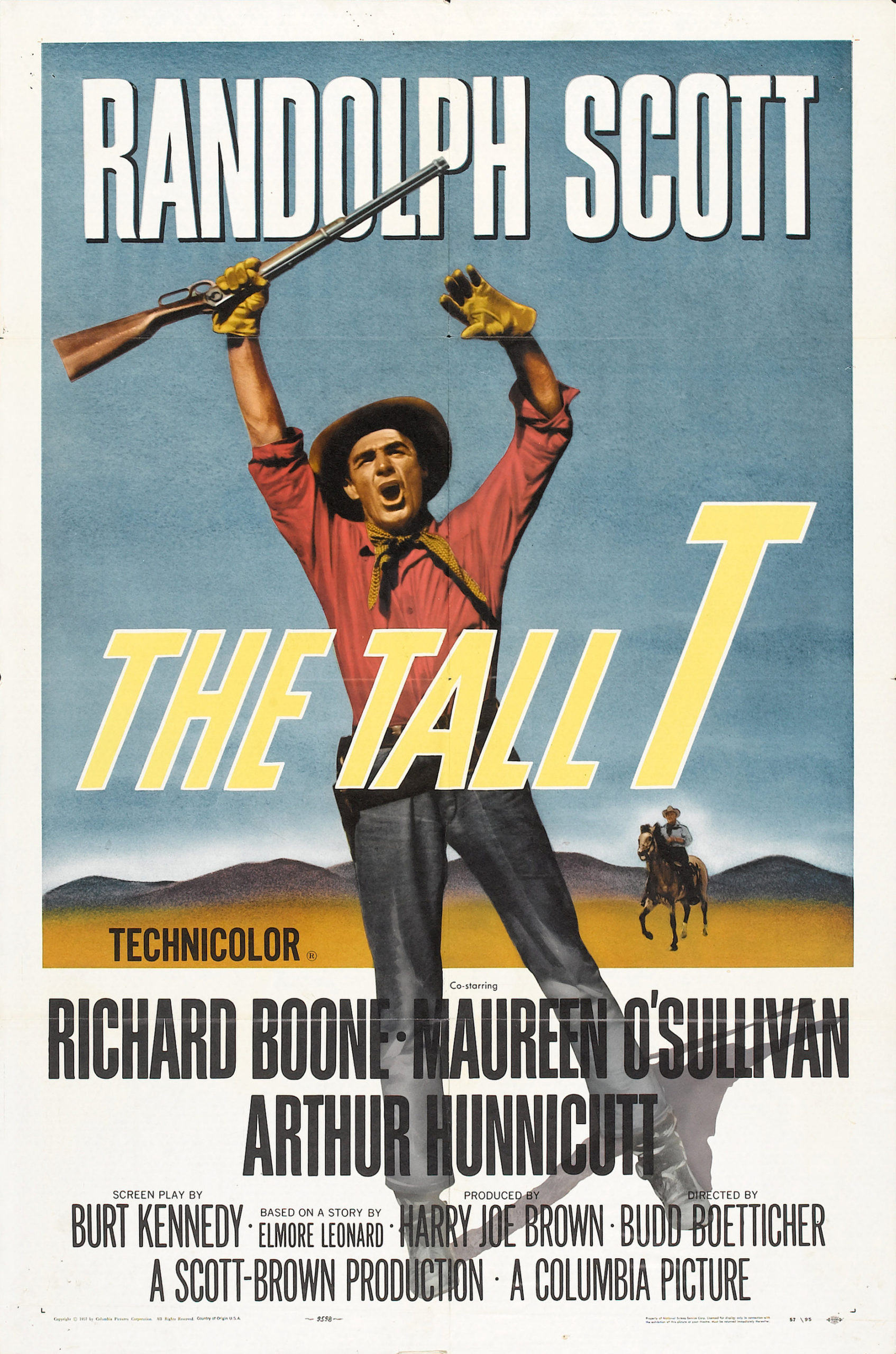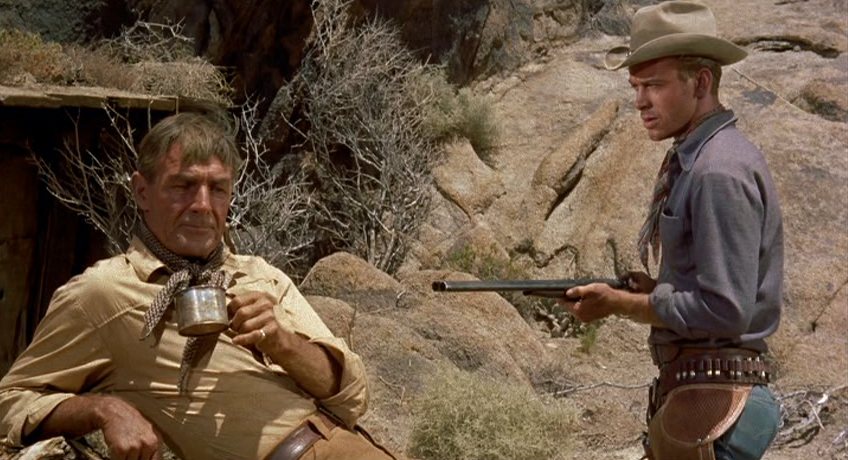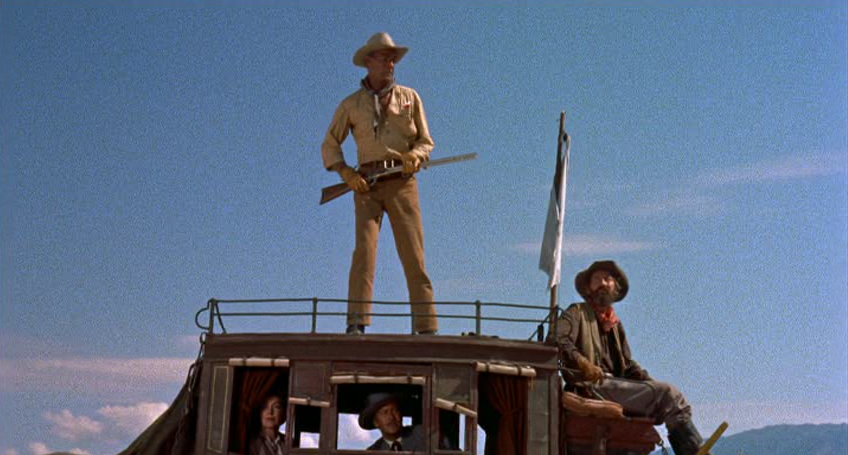

“That boy puts his wife on the stake and then wants to kiss her goodbye. You figure me that one.”
“What I can’t figure is why you only asked for fifty thousand.”
Initially regarded as throwaway genre films (and overlooked because of it) the seven collaborations between Budd Boetticher and Randolph Scott have since been rehabilitated and a few are now regarded as borderline-quintessential Westerns.
Low budget and genre-conforming though they may be—marked by small casts, veteran character actors in prominent roles, sparse sets, rapid production schedules, and short runtimes—these rugged, marginal little films manage to transcend their genre by offering pure distillations of it.
Take The Tall T, for instance. Epic in neither scope nor length, unassuming almost to a fault, it knows the rules of the game and follows them contentedly. Scott stars as Pat Brennan, a weathered former cowhand at an Arizona ranch who’s in the process of bootstrapping a homestead of his own out in the remote countryside. After stopping by a way station, where he trades barbed jokes with the station manager (Fred Sherman) and promises to purchase some candy for the man’s son (Christopher Olsen), he heads through town to his old stomping grounds, where he manages to lose his horse in a bet that would have won him a seed bull of his choice. Walking home with his head held high in defiance, he’s rescued from his long march by Rintoon (Arthur Hunnicutt), a friendly stagecoach driver who’s been hired to transport newlyweds Willard (John Hubbard) and Doretta Mims (Maureen O’Sullivan) on their honeymoon.
When they stop back at the the station to deliver the candy, they find that the owner and his son have been killed and stuffed down the well by Usher (Richard Boone) and his sidekicks, Billy Jack (Skip Homeier) and Chink (Henry Silva), who are expecting to hold up a gold-laden delivery coach. Instead, they proceed to kill Rintoon and kidnap the other three, seeking ransom from the wealthy father of the bride.

The rest of the movie unfolds in a predictable manner. The cowardly Willard offers his own wife in exchange for his survival, but is killed in disgust after delivering monetary demands to his copper baron father-in-law. In the guarded confines of an old mineshaft, Brennan and Doretta fall into something akin to love, and manage to outwit the three bandits and escape with their lives.
I’m not gonna be shot in the belly because you feel sorry for yourself.
It’s deceptively simple, relying more on decisive actions than long-winded dialogue to hash out its tale of greed, loneliness, lust, betrayal, and revenge. And yet, when it does get to talking, it is delightful, lifting most of its dialogue from the Elmore Leonard short story (“The Captives”) it is based upon. A highly stylized brew of archaic frontier terminology and contemporary language, much of it is punchy, piercing, funny, or some combination thereof.

As Martin Scorsese explains in A Personal Journey with Martin Scorsese Through American Movies, Boetticher “explored the bare essentials” of the Western in such a way that he was able to transform his formally-unremarkable films into rich character studies. This is most easily observed in the central relationship in the film; not the one between Brennan and Doretta, but the one between Brennan and the outlaw Usher. During their time hiding out in the mountains together, they realize that the chief source of angst in both of their lives is loneliness. They find common ground and discover that they share similar ideals and aspirations. Usher, for instance, has never killed a man, and dislikes the bellicose nature of his two henchmen (who, it must be said, are quite richly drawn for support players in a throwaway Western, as are many of the minor roles). Indeed, at first, he seems to keep Brennan alive because his own chosen companions are unworthy conversationalists. And so they are drawn together by senses of simpatico and mutual respect, entertaining ideas of what might have been, even while understanding that the situation has drawn them as mortal enemies: one, a righteous man prone to violence; the other, a violent man prone to bouts of moral reckoning. What makes The Tall T so engaging is that much of this is happening in the shadows, sometimes through offhand comments and others only by implication.
By sketching out the form of a standard story and giving precedence to colorful, slightly elusive characters, Boetticher modestly conjures an arresting incarnation of a familiar tale. In this way, he provides a minimalist, compact genre piece that satisfies expectations but also subtly explores the human condition with a deft touch.
Sources:
Thompson, Rick. “The Tall T”. Senses of Cinema. May 2006.